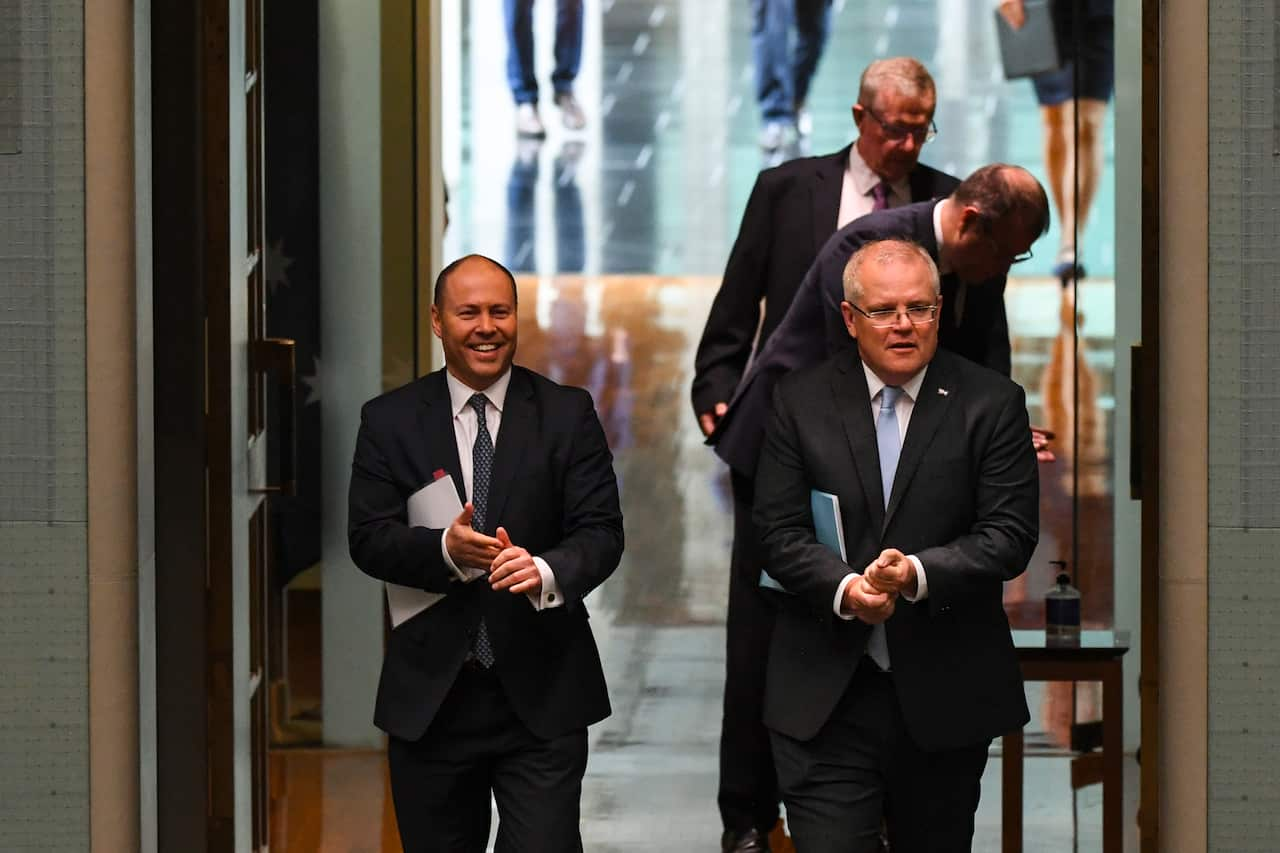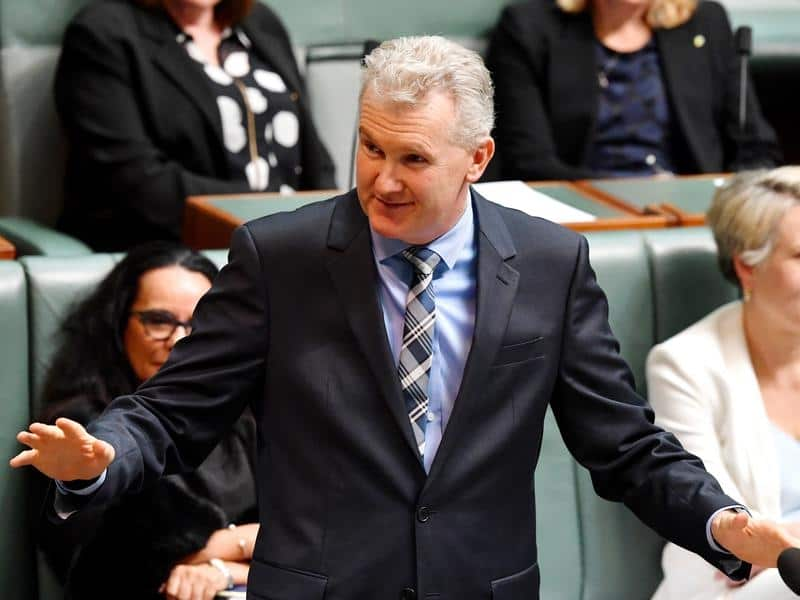Labor has written to the Speaker of the House of Representatives and the President of the Senate seeking ways to ensure parliament can reconvene in a "safe manner".
Prime Minster Scott Morrison cancelled the planned sitting fortnight starting on 4 August following advice from the acting chief medical officer and faced with growing concerns of the coronavirus outbreak in Victoria.
Labor leader Anthony Albanese reluctantly accepted the advice, disappointed that the government will avoid being held to account, particularly as Treasurer Josh Frydenberg will be handing down his economic and fiscal update on Thursday.

That statement will include the government's response to Treasury's review of the JobKeeper wage subsidy and the enhanced JobSeeker payment, both of which are legislated to end in September.
Labor is asking the Speaker and President of the Senate to convene a working group to develop protocols to have parliament return on 24 August, the start of the next planned sitting fortnight.
In the letter to Speaker Tony Smith and President of the Senate Scott Ryan, Manager of Opposition Business in the House Tony Burke and his equivalent in the upper house Katy Gallagher say the cancellation of parliament should always be a "last resort".
"With five weeks between now and the next scheduled sittings of 24 August, we have the time and the opportunity to determine the arrangements and health protocols that would allow parliament to sit, should the health challenges be ongoing," they say.

The working group would comprise the Speaker, President of the Senate, Chief Medical Officers of the Commonwealth and ACT, Leader of the House, Manager of Opposition Business in the House, Manager of Government Business in the Senate, and Manager of Opposition Business in the Senate.
Prime Minister Scott Morrison on Monday said the decision for parliament not to sit was "frankly a no-brainer" given the medical advice provided.
"We know how important it is for the parliament to meet and sit," he told reporters.
"There is a sense across the major parties that we sit in person. That is an important part of how our parliament functions and (we) will be seeking to do that when the parliament next sits."
In the United Kingdom, the British Parliament adopted a hybrid model in April to allow questions and statements to be delivered by MPs both in-person and via video conferencing.
ACTU president Michele O'Neil told the ABC's Insiders program on Sunday she couldn't see why politicians couldn't work virtually like everyone else.
"We're working virtually were working in ways that people have never worked before, I don't see what government can't do it," she said.
"Why can't we have the parliament operate in a way where people can stay where they are, and still be able to debate and discuss and make decisions it should happen on zoom? It should happen virtually."
Evan Mulholland, director of communications at think tank the Institute of Public Affairs also wrote an opinion piece in the Sydney Morning Herald saying there was no excuse for shutting parliament in the digital age.
"Our elected politicians have been asking businesses and schools to change what they are doing to become “COVID-safe” workplaces," he wrote.
"Anything a politician asks a business owner to do, MPs should do also."
Labor's letter said parliament had already achieved the "very difficult task" of holding in-person sittings during the pandemic without unnecessary health risks.
"No doubt, the current situation presents new and complex challenges, but these challenges should not be viewed as insurmountable."
Labor's opposition business spokesperson Tony Burke on Monday said the preference was for parliament to continue in-person rather than virtually.
"I'm not going to start by giving away what is the best way to conduct a democracy," he told ABC Radio.
"It has to be possible to still be able to meet in person."

